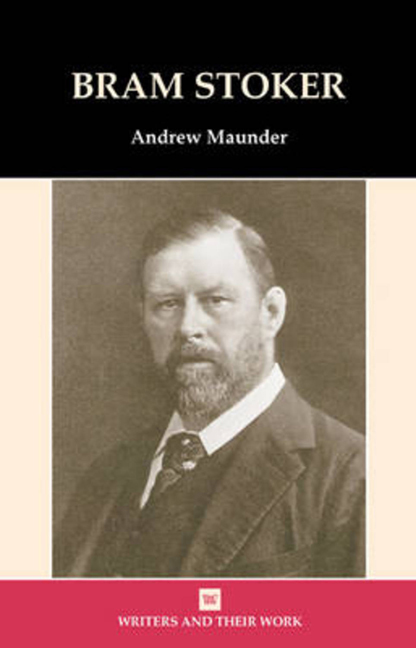1 - Stoker and the Critics
Summary
The rise, fall and resurgence of interest in Bram Stoker and his work reflects the changes and fluctuations in literary taste and critical approaches that have taken place over the last 100 years. In his own day Stoker was a well-known man-about-town, doyen of the male world of Victorian clubland, whose stories gave him a reputation as a ‘masterful’, ‘manly’ and lsquo;ennobling’ writer. The diversity of his work meant that he was compared at various times to Sir Walter Scott, Robert Louis Stevenson and H. G. Wells, whilst some even suggested that it was through his work that the English novel had reached new heights of ‘purity’. In 1896, The Spectator stressed Stoker's creative originality; this was a novelist who was ‘vigorous, clever, pleasant and distinctly out of the common.’ In 1897, the conservative Daily Mail placed Stoker alongside Marie Corelli, Anthony Hope, Walter Besant, Mary Braddon and Grant Allen in a list of the writers most popular with novel readers. A London newspaper headline of 1907 screamed ‘PRURIENT NOVEL IS CONDEMNED, BRAM STOKER OPENS CRUSADE IN LONDON’, a response to Stoker's campaign to rid modern fiction of ‘impure or dangerous materials’. Yet in the years following his death, attacks on an outlook that came to be regarded as old-fashioned and out-of-date ensured that Stoker was transformed from a figure of respect into one of ridicule.
The publication in 1906 of Stoker's sycophantic (and somewhat self-serving) memoir The Personal Reminiscences of Henry Irving helped to intensify the picture of a strict moralist and eager, respectable servant of middle England who, in the supreme act of ‘flunkeydom,’ propped up the ego of an overrated actor-manager who ruled over the realm of old English theatreland as majestically as Queen Victoria did her own Empire. Stoker's glorification of Irving (and Irving's theatrical triumphs), coupled with his very public outburst in 1908 against the ‘startling fact of decadence’ in modern fiction, made it very easy to see Stoker as out-of-date, too blinkered and too pompous to speak meaningfully to a modern sensibility. In 1906, in a review of the Reminiscences, Blackwood's Magazine labelled him a man of ‘native simplicity’.
- Type
- Chapter
- Information
- Bram Stoker , pp. 12 - 28Publisher: Liverpool University PressPrint publication year: 2005



